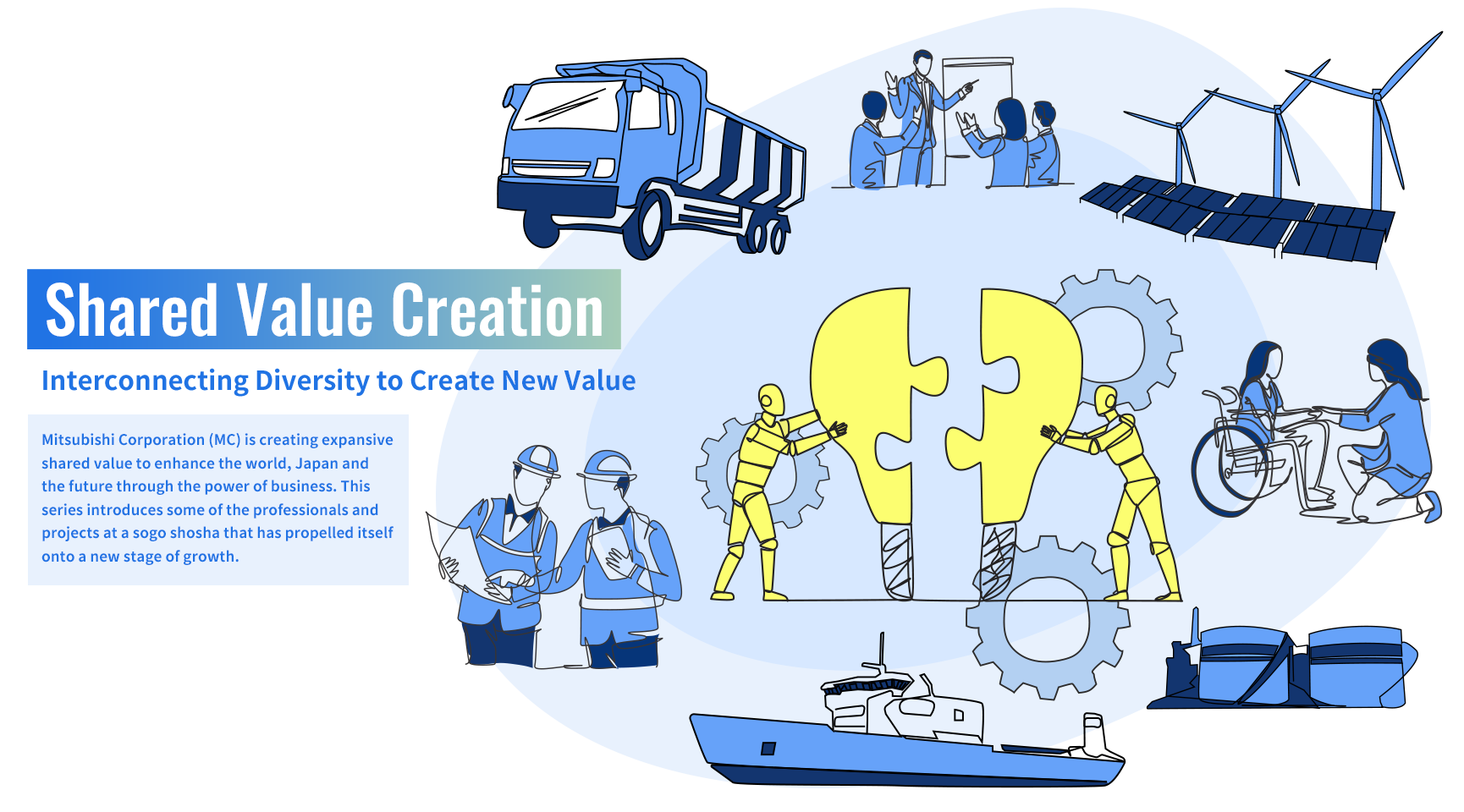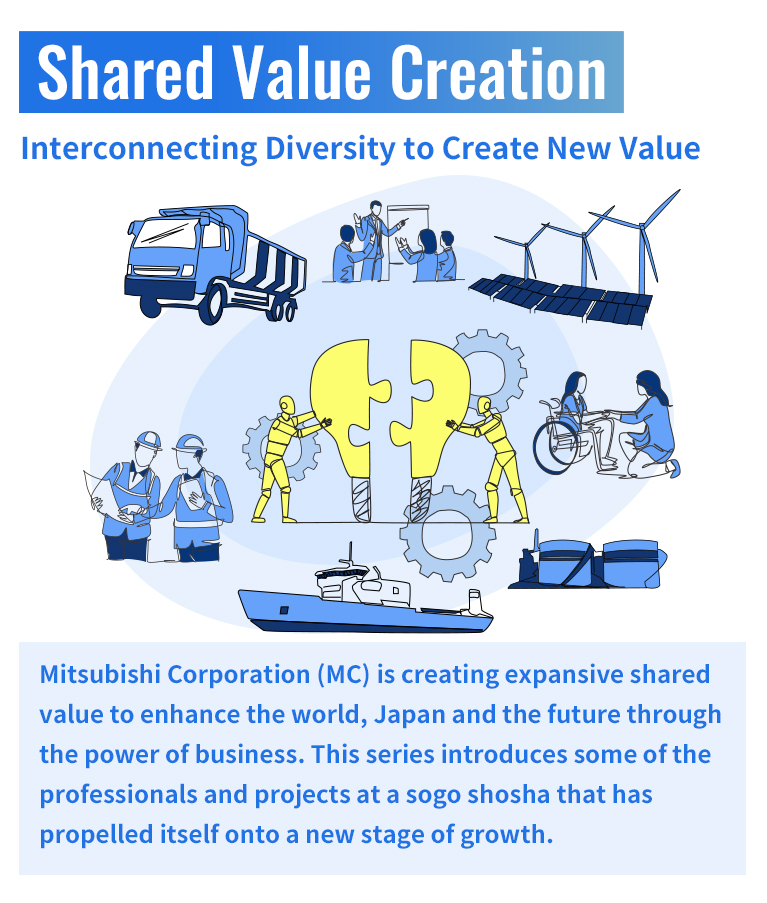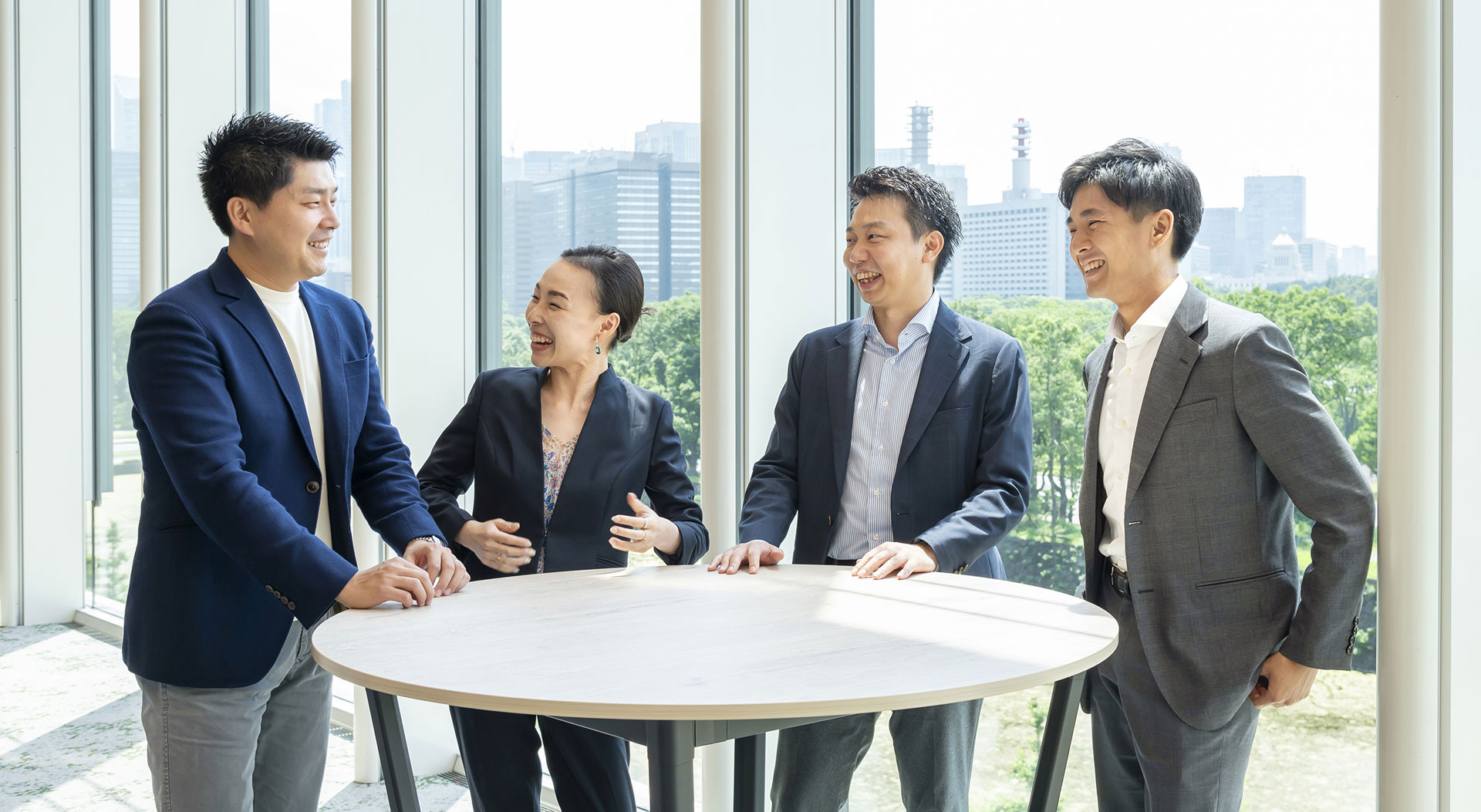MC's Urban Development & Infrastructure Group is dedicated to developing social infrastructure and addressing the challenges therein. The group's operations are truly diverse, spanning the development and management of cities and real estate, to businesses in a wide range of other industries, including airport and roads management, water, shipping, aerospace and defense, and machinery for construction and agriculture. In the second half of our roundtable discussion with four of the group's professionals, we examine the mission, motivation and future vision of those working to support social infrastructure. (Interviewer: Kazuhiro Sekine, Asahi Weekly Digital GLOBE+ Editor in Chief)
-
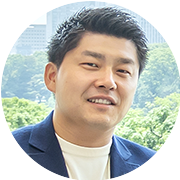
Kazuma Murakami
Infrastructure, Ship & Aerospace Division, Defense & Aerospace Department, Aerospace Business Team
-
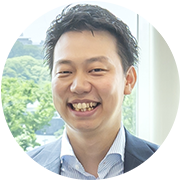
Yusuke Muroya
Industrial Machinery Division, Construction Solutions Department
※Currently on secondment to Nikken Corporation -
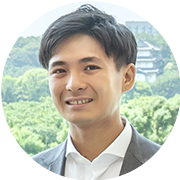
Yuki Ono
Domestic Urban Development & Digital Infrastructure Division, Domestic Urban Development Department
-

Nozomi Kumada
Global Urban Development Division, Asia Urban Development Department
A Powerful Sense of Mission to Support Social Infrastructure
—— In the first half of our discussion, you each explained the projects you're working on, and I was impressed by how deeply responsible for those projects that you all seem to feel. I get the idea that you share the same ambitions and mission. Can you tell me more about your own sense of responsibility with respect to these businesses?
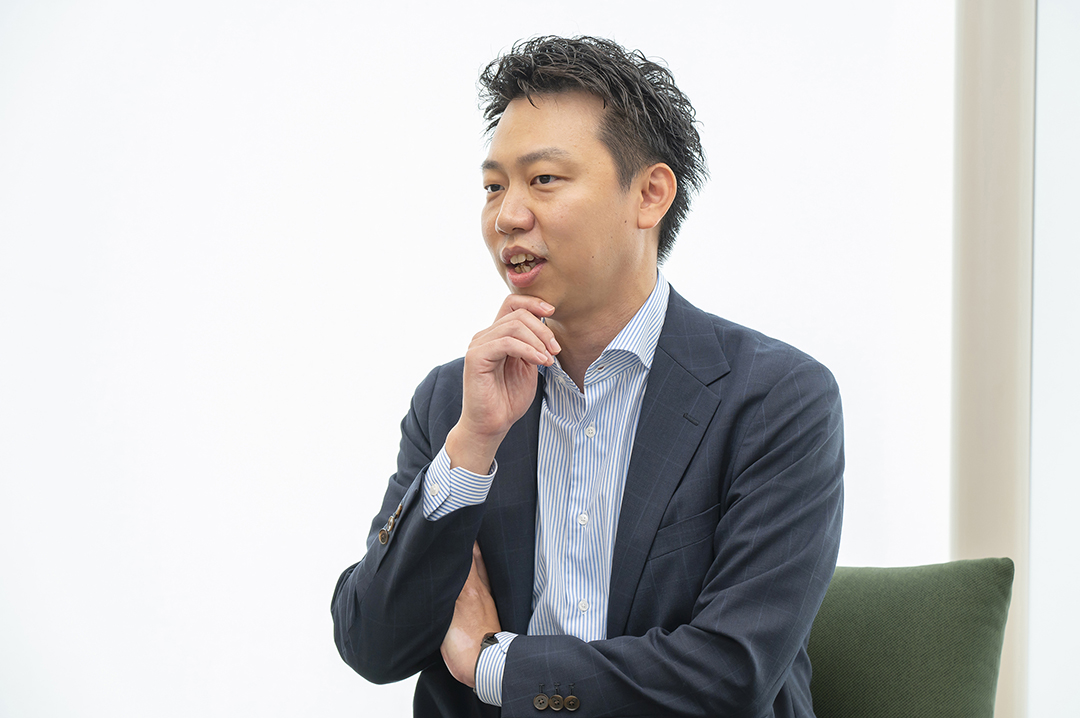
Muroya
I'm always conscious of my personal obligation to help protect and strengthen part of Japan's social infrastructure. Renting construction machinery and other important supplies makes me feel that we are doing our part to build safe and secure building sites, and that feeling is particularly inspiring when it comes to fulfilling my responsibilities in equipment inspections, the development of safety devices, and so on.
Also, one issue that has come to light in recent years here in Japan is the so-called "2024 problem," which refers to limits on truck-driver overtime hours that came into play this year. Obviously, dealing with this problem has been a very serious matter for the logistics industry, but it has presented an equally daunting challenge to the construction industry as well. Labor shortages in construction are a much graver problem than I think most people realize. In the near future, we could find ourselves unable to build simply because we don't have the people to do it.
This is why boosting industry-wide productivity in construction is such an urgent matter. As I mentioned in the first half of our discussion*, building online-rental systems, fitting machinery with GPS sensors and otherwise leveraging digital technologies to improve operational efficiency is an example of how we can do that.
*See previous article
MC's Construction Solutions Department is working on other ideas too. For example, we're collaborating with MC's other business groups and group companies to offer digital solutions that will boost the efficiency and precision of construction-project management in cases involving multiple players and lengthy time frames from planning and design to delivery. We're also discussing pre-fab modulizations to shorten construction periods, methods that will use standardized parts produced in factories but assembled on site.
It may sound a bit presumptious to suggest that we'll be propping up Japan's construction industry, but this is a sector that's undergoing huge reforms right now, so it's really motivating to try out new ideas from one day to the next and think of how we might be able to help boost future productivity.
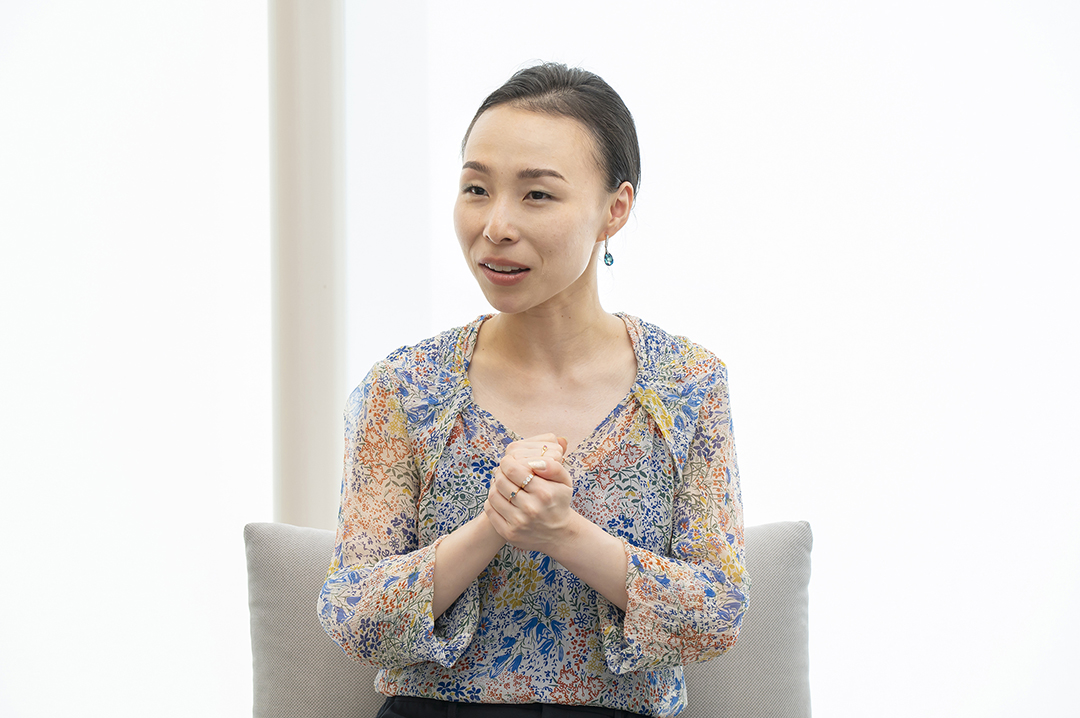
Kumada As I mentioned earlier, I'm involved in projects to develop and manage real estate in Vietnam, but when I first visited the country, I was surprised to see how the locals live. Starting around midday, neighborhood cafes will begin filling up with people, who while away much of their time sipping sweet coffee and chatting with one another. In the evening, shops lining the major streets will place little chairs outside their entrances, and the people will move from the cafes to those chairs and spend hours more chatting and fanning themselves. It always warmed my heart to witness those things, because the Vietnamese people share such a placid and calm national character. One day though, a local business associate said to me, "The reason the Vietnamese people spend so much time at cafes is because there's nowhere in their homes where they can feel at ease." I was stunned by his words, but when I thought more about it, I realized how odd it was that even though Vietnam was enjoying such strong economic and population growth, its housing industry just wasn't keeping up. There is an astonishing shortage of housing in that country, and many Vietnamese live in the most cramped conditions imaginable. In urban centers for example, it's not uncommon for people to set up multiple bunk beds in a single tiny room. Along with food and clothing, shelter is one of our three basic needs. Our aims are to bring Vietnam's housing situation up to par with its economic growth, supply its citizens with enough homes, and build spaces where they can live comfortably and relax in mind and body.
True Value Born of Keen Knowledge
—— Under its latest management plan, Midterm Corporate Strategy 2024, your company is working to create something called "MC Shared Value." When do you know that the MC Group's collective capabilities have made that happen on a significant scale?
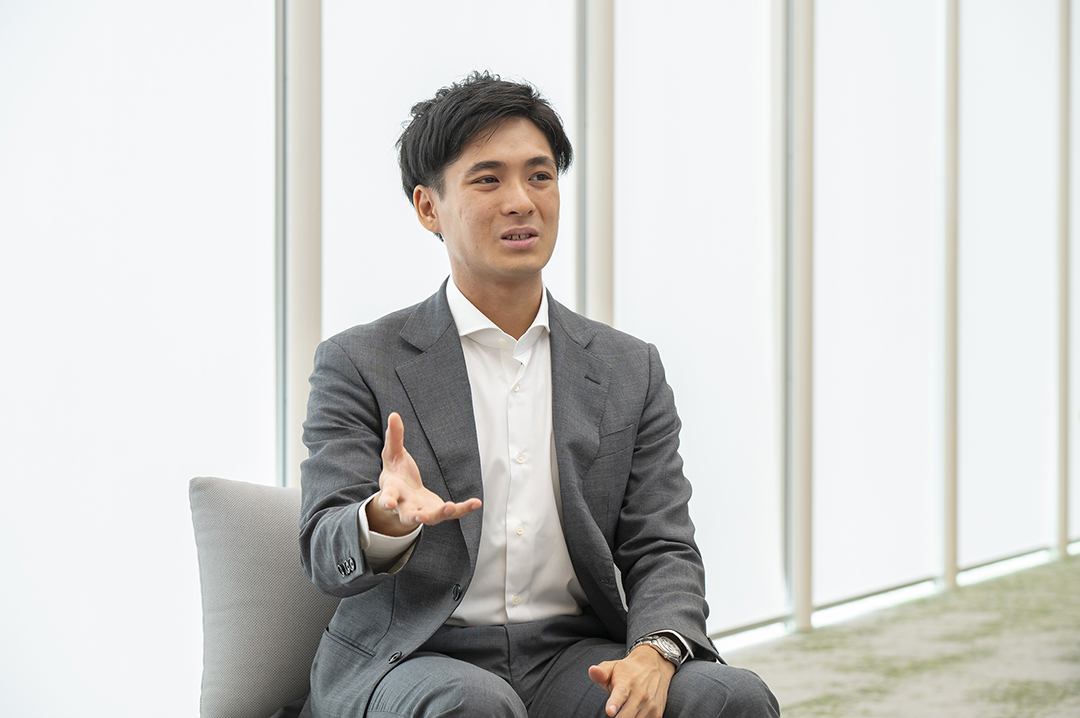
Ono
I spoke earlier about my work in the Kamakura-Fujisawa area, which we're trying to redevelop into a hub for health innovation. Urban development is a major undertaking, and it takes more than teams of real-estate professionals to make it happen, so it's vital that we collaborate with other parties, both within and outside our business group.
For example, one thing we've been working on together with MC's Mobility Group and others are projects dedicated to making public transportation more convenient. The Mobility Group is making good progress with its on-demand community-bus trials for Shonan General, so we partnered with it to perform a feasibility study on leveraging subsidies granted by the Ministry of Land, Infrastructure, Transport and Tourism to businesses implementing driverless technologies in the area (feasibility studies are prerequisites to commercialization). We're also engaged in a number of joint projects with MC's Smart-Life Creation (S.L.C) Group*. These include providing health-management support for locals that take advantage of extensive life data, integrating locally derived data management and commencing early-stage talks on building the systems needed to offer a wide variety of services.
*The Smart-Life Creation Group is committed to creating a prosperous society and “Smart-Life” solutions. Its operations focus on improving quality of life by launching a variety of B2C businesses that address social issues and consumer needs in each region and country.
Earlier Mr. Murakami spoke about drug-related research on the ISS*, but we're investigating the possibility of turning Shonan iPark into Japan's hub for activities dedicated to that aim, in other words, discovering and producing new pharmaceuticals in space.
*See previous article
This is just one example, but I'm hopeful that we can use cross-group ties to enhance the Kamakura-Fujisawa area's added value in ways that only MC can.
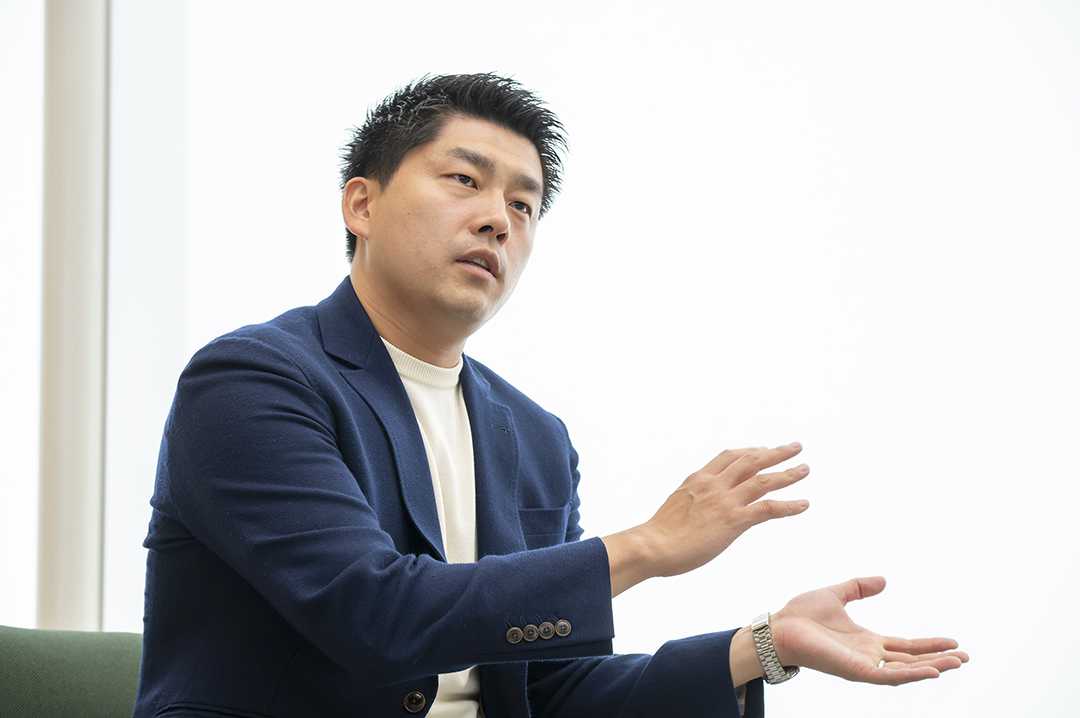
Murakami Working for the Aerospace Business Team, I'm reminded of the MC Group's collective capabilities every day. In the life and medical-science fields, we're getting support from the Shonan iPark that Mr. Ono and his and her colleagues are working on, as well as the S.L.C Group, which deals in pharmaceuticals and medical supplies. In advanced materials, we're being assisted by the Materials Solution Group, and our governance structure, which is supported in many ways by MC's corporate professionals in finance, law, management and corporate communications, has been instrumental in helping to make new business developments possible. I worked at other companies before joining MC, but I think this company's strength is its keen knowledge of so many different industries. MC doesn't just have connections to different sectors and businesses, it also develops its own unique brand of business, which puts it in an advantageous position. For example, when I speak with employees from the S.L.C Group, I get the impression that they're actually pharma pros (laughs). This is because they're so positive about the industry and have done a lot of networking therein. They've been a really big help to us. Having said all that, there are naturally limits to what MC's business groups can do without outside support, so we've been proactive about forming alliances with a variety of other players in Japan and around the world, and they include both private enterprises and public institutions. All of that collaboration has put us in a position to materialize our vision.
At MC, We're Not Afraid To Get Our Hands Dirty
—— The Urban Development & Infrastructure Group truly does have fingers in a lot of pies. If you could each sum up what makes your group so unique, what would you say?
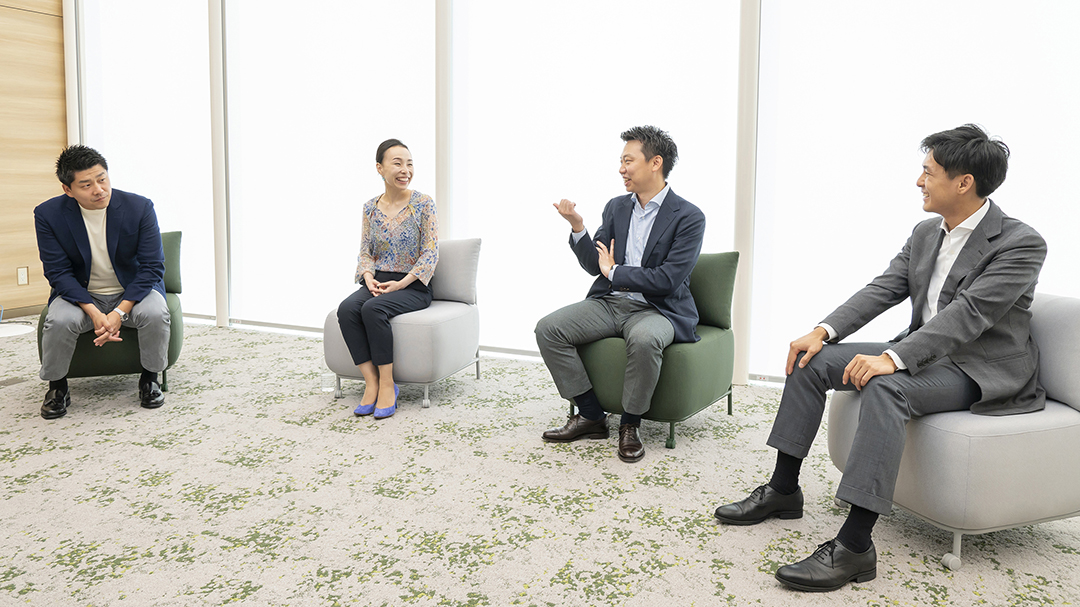
Muroya Listening to everyone today has reminded me that our group's employees all have one thing in common, we're not afraid to get our hands dirty (laughs). No matter where we're working, there's always going to be unglamorous and dreary jobs that need doing. We know that work is unavoidable, and we don't shy away from it. We address every little task seriously and consult face to face with our customers to make sure everything, no matter how trivial, is done to their satisfaction. Solving social problems is not easy, but I think a willingness to give everything we have to that goal is a special trait shared by those in our group. Ono I feel exactly the same (laughs). Urban development involves a lot of different interests, and it demands a willingness to consider every single one of their opinions. Doing that, and doing it well, might be some of the most unglamorous and painstaking work there is. For example, much of the community in Kamakura is ancestral, but a lot of researchers also moved into it from overseas to assist with and take advantage of the launch of Shonan iPark. Naturally, hopes and expectations for the community will differ depending on the residents, so we interviewed many of them to hear their thoughts and held regular community events. In other words, we've worked very hard on communicating with everyone, but we're still only halfway there, so we'll need to continue doing our best and collaborating with all parties involved.
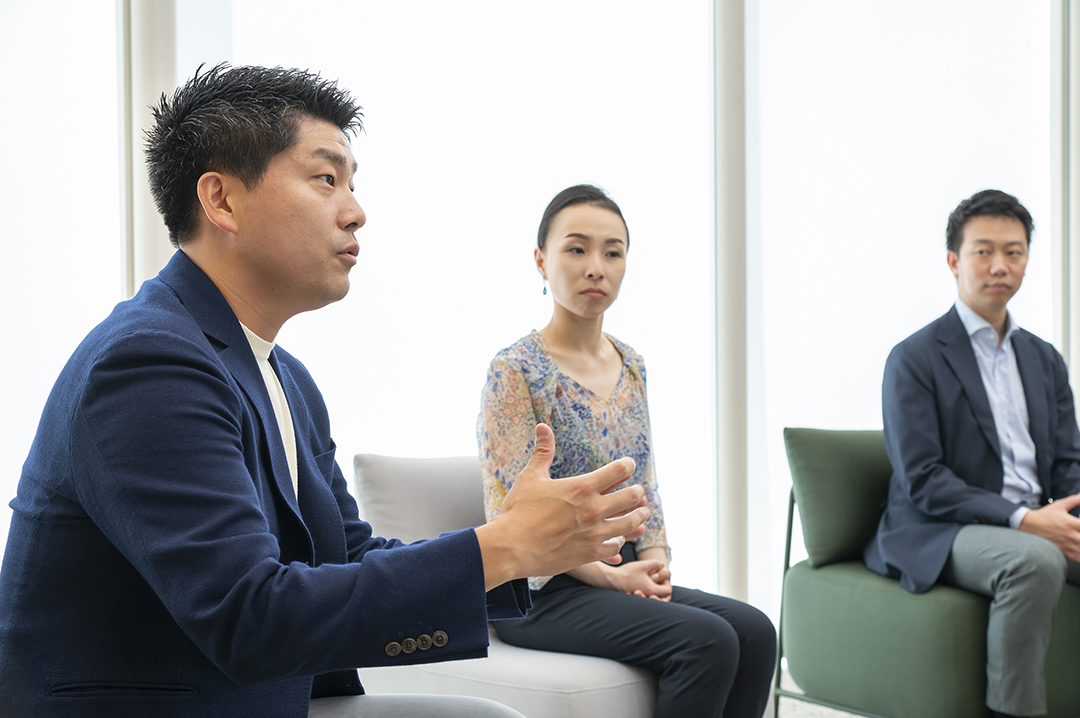
Murakami Another thing that I think sets us apart from MC's other business groups is the depth and breadth of our connections to the industries we're engaged in. From land to sea and air to space, the area covered by the Urban Development & Infrastructure Group's operations is massive, and that's a unique feature of who we are. Our scope is our strength, and I think the biggest question that can be asked of us, is how are we going to apply it?
—— What is you group's mission?
Muroya To build cities, societies and the future. That may sound audaciously ambitious, but I think what we've been discussing today makes it clear that that truly is our mission. Balancing existing-business reforms with new-business creation in ways that help to address social problems is our group's raison d'être.
Work We Can Speak Proudly of for Generations to Come
—— Let me conclude our discussion by asking each of you for some personal thoughts on your own work and what you hope to achieve through it.
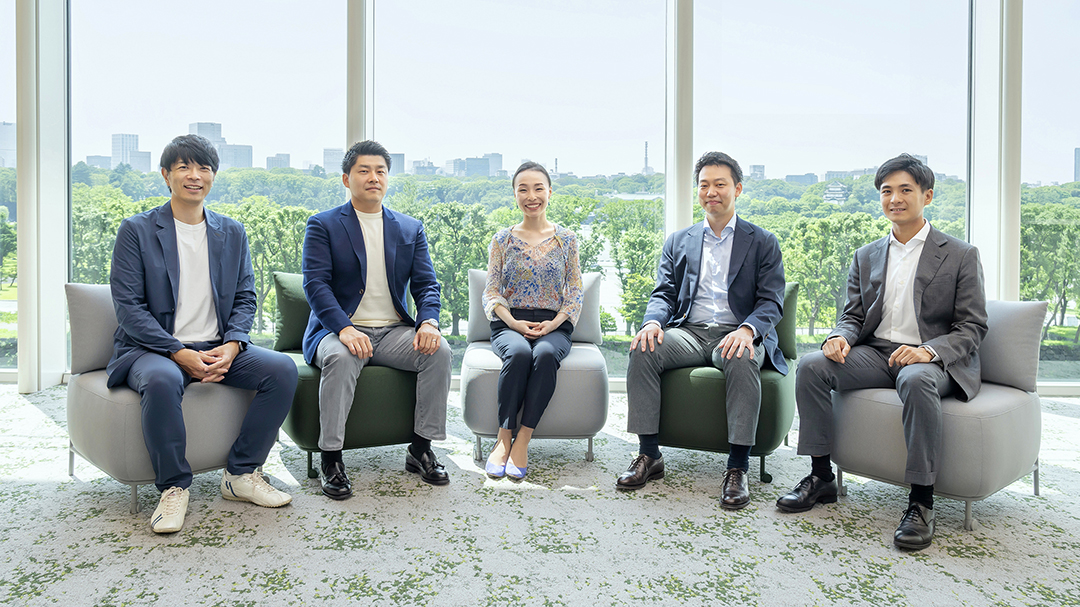
Murakami When I tell people that my work is related to space, they often say something like, "Wow, real-life science fiction!" or react in other ways that suggest my colleagues and I are only dreaming about the future. In truth though, the business of space is less about dreams and romantic notions of the future as it is about real business that's rooted in the here and now. International competition to commercialize space is intense, so when it comes to using space to spur innovation and contribute economically to societies and businesses, there's already a pressing need for concrete results that will help solve problems here on earth. My dream is to turn the business of space into a new core industry for Japan to lead the way in. The hurdles to realizing that dream are high, but the challenge has only just begun, so I'll continue to do everything I can to make it happen. Ono Developing and managing cities are business models with no "one-size-fits-all" solution. The questions are, how do we build each community in ways that will address its unique industrial and regional challenges, and can we work with others both within and outside our group to determine which business model is the best fit? I feel that there are always new challenges and inspirations waiting to be discovered. JR East has plans to complete the construction of a new station on its Tokaido Line between Ofuna and Fujisawa stations. It hopes to open this new station, which it has tentatively named "Muraoka New Station," around 2032. This project is part of aims to help the local residents enjoy a more vibrant quality of life, stimulate the drug discovery and development industry, and ensure sustainable development of the surrounding area. I'm looking forward to seeing that future-city vision materialize.
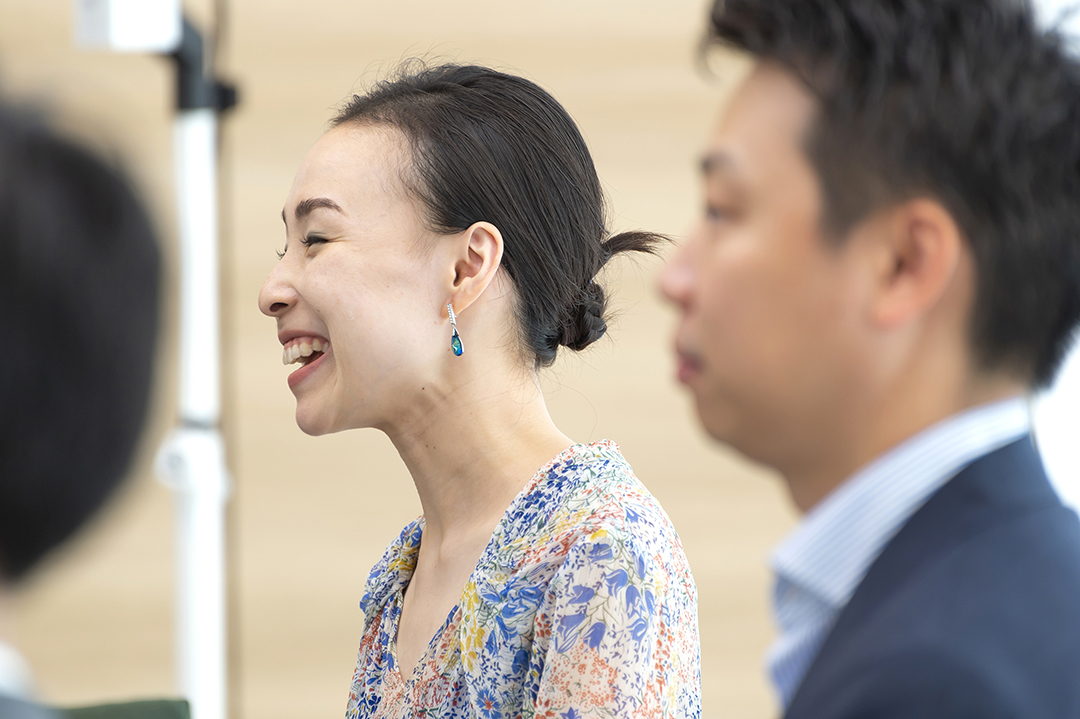
Kumada My work isn't just selling properties. It's also invested in providing "personalized homes" with interiors designed to facilitate comfort and peace of mind for their owners, so I prefer to think of it as "selling dreams." I also find it very stimulating to work in a country as energetic as Vietnam, and I'd be delighted if I could branch out from real estate into urban developments and other next-generation businesses. Muroya Frontline construction is a harsh environment, and there are a lot of professionals who work very hard there. The Construction Solutions Department's slogan is "Helping everyone in construction to enjoy their work," and we're truly committed to doing that. My personal goal is to finish my career in a way that leaves a lasting legacy for my family to be proud of, so I want to accomplish things that become "future standards" for realizing the best societies possible. That's my dream, and I'll continue doing all I can to realize it.
